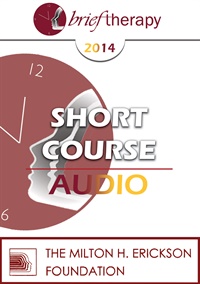BT14 Short Course 05 - The Curiosity Oriented Approach - Richard Hill, MA
- Average Rating:
- Not yet rated
- Topic Areas:
- Short Courses | Brief Therapy | Neuroscience
- Categories:
- Brief Therapy Conference | Brief Therapy Conference 2014
- Faculty:
- Richard Hill, MBMSc, MEd, MA
- Duration:
- 1:00:54
- Format:
- Audio Only
- Original Program Date:
- Dec 11, 2014
- License:
- Never Expires.
Tags: Brief Therapy Neuroscience
Description
Description:
Curiosity has long been an important element of therapeutic practice, but neuroscience gives us a deeper understanding and allows for curiosity to be more effectively practiced. New techniques that engage curiosity also act to enhance the client-therapist relationship which we now know is the most important element of successful therapy. Being curious about A Curiosity Approach is exactly what is required to seek out and participate in this workshop.
Educational Objectives:
- To understand the new neuroscience of curiosity.
- To be able to practice 2 new Curiosity Oriented Techniques.
- To list the 3 fundamental elements of the Curiosity Oriented Approach
*Sessions may be edited for content and to preserve confidentiality*
Credits
Faculty

Richard Hill, MBMSc, MEd, MA Related Seminars and Products
Richard Hill has emerged from a diverse and fascinating journey to become a successful psychotherapist and an innovative speaker on the mind, brain and the human condition. From a satisfying, if not quite famous, early career in the creative arts, Richard returned to intellectual studies at 42 (1996) beginning with a Bachelor of Arts majoring in linguistics. This triggered a curiosity that led to a diploma in counselling and a new career in psychotherapy. Studying continued and, as of 2014, he has added three Masters degrees – an MA in Social Ecology; a MEd; and a Masters in Brain and Mind Sciences (MBMSc) from Sydney University. Richard is also fortunate to have been mentored by the esteemed Ernest Rossi PhD who has invited Richard into the International Psychosocial Genomics Research Team to study the impact of therapeutic practices on the genetic level.


